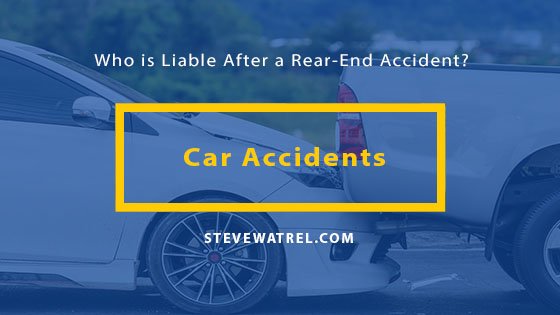Virtually everyone has been involved in some type of rear-end accident at some point. Even if the incident was minor, it counts. For most rear-end accidents, determining who is at fault is somewhat of a simple matter – the person responsible for hitting the vehicle in front is the one who is liable.
However, this isn’t always true.
Keep reading to learn how liability for rear-end collisions is determined in the state of Florida and any exceptions to the rule.
Liability Considerations in Rear-End Collisions in Florida
As a general rule of thumb, the driver who hit the other vehicle will be considered at fault for the rear end accident. This is because drivers should never follow another vehicle on the road so closely that if the person were to stop suddenly, they would not be able to stop in time before colliding with the vehicle.
Liability is usually looked at by considering the damage to each of the vehicles – one will have damage in the front and one in the back – along with testimonies from the drivers as well as any witnesses to the accident.
In most situations, the driver from behind will be responsible for the damages and the injuries that have occurred.
While this is true, it isn’t always the case.
Exceptions to the Rule: When Fault in Rear-End Accidents Isn’t Clear
While these situations aren’t common or likely, there are a few exceptions when it comes to who is liable for a rear end accident. For example, if the driver in the lead exhibited some type of negligence that resulted or contributed to the accident, liability may not be all on the driver behind them.
An example of this would be if the brake lights of the front driver’s vehicle are out or if they have engaged in some type of reckless behavior or road rage. If this is the case, then this driver can be held partially responsible for the accident. However, the claim will likely have to be investigated, so it is a good idea to hire an attorney for help with this.
Another exception that may occur is due to the no-fault law in Florida. This is when each of the driver’s insurance company is responsible for paying for their injuries. This helps to avoid overcrowding the courts and the total number of active lawsuits. In this no-fault state, liability isn’t relevant unless the injuries are severe or if they cause lifelong problems.
If the accident involves a multi-car collision, then it may also be an exception. This is especially true if one car has pushed another, so it hits the rear of a third vehicle.
How to Handle a Rear End Car Accident
Due to the complexity of these cases, it is best for those involved to take action and hire an attorney – especially if liability isn’t clear. This is going to pay off in the long run.




